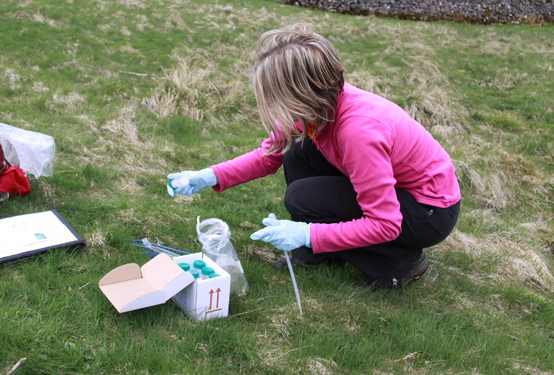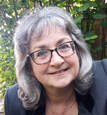Our Vision
|
The role and importance of the services Local Environment Record Centres (LERCs) provide and their contribution to addressing the ecological and climate emergencies is widely recognised, fully appreciated and that they are sustainably funded, so that all decisions impacting on the UK’s biodiversity are made using the best available evidence.
Our MissionALERC provides a voice for our Members across the UK, facilitates collaboration with them on behalf of our regional and national stakeholders, runs an LERC accreditation system to ensure common standards across our sector, and delivers professional development to our Members’ employees.
|
Our Goals
ALERC aspires to embed good practice and FAIR data principles into data collection, stewardship, sharing and utilisation of environmental data at all levels. Thus, ensuring decision makers have the information they need to make decisions that improve the UK’s biodiversity and enable them to monitor progress towards the UK targets. To achieve this the ALERC Strategic Plan 2023-2027 sets out the following goals:
- ALERC and its Members are valued nationally and locally as a critical partner in the national biodiversity dataflow.
- ALERC supports a UK wide network of Accredited LERCs enabling them to thrive individually and as a network as essential biodiversity information service providers.
- ALERC is a respected, recognised and well-run organisation.
ALERC's 5 year Strategy
The current ALERC Strategic Plan runs from 2023-2027. Download (PDF) ALERC Strategic Plan 2023-2027.
Our Directors
|
Deb joined the ALERC Board in September 2019. She has been appointed as an ALERC link wtih the NBNT and has an informal connection to with the Scottish Biological Infrastructure Review process.
Until August 2022 Deb managed Cumbria Biodiversity Data Centre, based in the Tullie House Museum and Art Gallery in Carlisle. Her role was to promote the value and use of the data held at CBDC as well as the data and ecological services that staff can provide. Recent projects include habitat mapping and species recovery network mapping for Cumbira Local Nature Recovery Stategy, the Ancient Woodland Inventory update, collating and mapping pollinator records and delivering species identification training for the Cumbria Local Nature Partnership, building a hedgerow database to hold and analyse survey details from the Rusland Horizons project and developing online mapping tools for Cumbria GeoConserservation. Deb is a member of the Carlisle Natural History Society and Botanical Society of the British Isles. Recently she has redirected her studies to dung beetles and bryology. |
Adam has worked in LERCs since the early 1990s. After starting his career at Somerset Environmental Records Centre, Adam spent five years working on the 'Hampshire Biological Record' before becoming Manager of Wales' first LERC, the Biodiversity Information Service for Powys and Brecon Beacons National Park, in 2000. Adam joined the newly-formed SEWBReC as its first Manager in 2004.
Adam was the first Chair of ALERC and other previous roles include being a Trustee of the National Biodiversity Network Trust and Vice Chair of the National Federation for Biological Recording. Within Wales, Adam was instrumental in the establishment of the LERC network and represented the interests of SEWBReC and the other Welsh LERCs on a number of groups including the Wales Biodiversity Partnership Steering Group and the Wales Environmental Information Steering Group. Away from the world of Records Centres Adam is a member of Ogmore Phoenix running club and has completed a number of events including half marathons and this year completed the 32 mile Vale of Glamorgan coastal ultra. |
|
.Mandy joined the council of NFBR in 2002 when it was the national advocate for LRCs. Over 11 years, Mandy chaired the LRC sub group, helped organise the first LRC-specific conferences in 2004 and 2005, and wrote the paper that led to the establishment of the Biodiversity Data Users Group.
Mandy co-chaired the Association of Local Biodiversity Information Centres Steering Group, which was formed at the 2005 conference. It drafted a constitution for a new association, and the members formed the ALERC Steering Group in 2008, and launched the CIC in 2009. Mandy was a member of the Accreditation Steering Group, and has had two spells as a director (2011 – 2017 and 2018 onwards). She set up and chairs the business development group which is her main focus. The group has developed ALERC’s positions on charging, open data and led the ‘LERC’ name consultation. Mandy became assistant on London Wildlife Trust’s Biological Recording Project (BRP) in 1997, and manager in 1999. An independent consultation gave the go-ahead to turn the project into a local environmental records centre, and after a two-year development phase GiGL launched as a hosted records centre in 2006, then as a community interest company in 2013. Mandy has been a trustee of the NBN Trust since 2016. |
Mark is the only ‘ever present’ Director on the board, being one of the founding Directors in 2009 and is currently our treasurer. Mark has fulfilled a number of roles within the board, including organising conferences, reviewing the Accreditation criteria and building ALERC's websites. He currently oversees the Communications and Influencing work area and is part of the group responsible for the ALERC accreditation system.
NEYEDC is an independent LERC, being the operating function of a charitable Trust that was formed in 1999 and covers two counties and two city unitary authorities. Mark joined NEYEDC in 2005 since when it has grown to 5 staff, has its own publishing arm and is currently running the National Lottery Heritage Fund 'NatureHack' project promoting new technologies to site managers. NEYEDC operates an Unmanned Aerial Vehicle (drone) for aerial surveying and Mark is a qualified UAV pilot clocking up over 60 hours flying time. He also oversees data verification and management, manages agreements with clients and works on producing data products and services. Mark is a member of the British Ecological Society and the Yorkshire Naturalists Union. He also chairs the Yorkshire and Humber Ecological Data Network, which includes the other five Yorkshire LERCs, and who collaborate to produce regional data products. Away from LERCs Mark enjoys hill walking and tending to his allotment. He spends a week or two each winter in the mountains snowboarding. |
|
This is Ian’s second stint on the ALERC board, having previously served for five years, helping to develop and deliver their first five year strategy. He brings 25 years of experience within the built environment/commercial sector into his role as Manager of the Devon Biodiversity Records Centre, and to ALERC. Over the last 10 years he has doubled DBRC’s capacity, greatly increasing the operational and strategic support it can provide to its partners and stakeholders, and is a massive advocate for collaborating with others within the sector, and for the sharing of skills and expertise within the LERC community.
His previous career was divided equally between roles delivering asset management for Thames Water and land and new homes development within the South East, before moving into sustainable construction within the South West, an area of high interest to Ian. As Marketing and Development Manager at the Ecos Trust, he was involved in creating the countries first Eco Excellent houses, and subsequently the first Code For Sustainable Homes level 5, both in the South West. Using good biodiversity data within the design, planning and build phases of both of those projects cemented the value of LERCs, and moving into the conservation sector he then spent three years managing regional development projects for the SW Wildlife Trusts and Natural England, before moving to his current role. |
Leon's first experience with LERCs came in 2008 when he started as a Conservation Advisor for Essex & Suffolk Water and would frequently request data from, and liaise with the Essex, Suffolk and Norfolk records centres. Having taken over as manager of the Somerset Environmental Records Centre at the end of 2019, and joining the board in 2020, Leon built up four years of direct LERC management experience before moving on to his current role, advising the UK Woodland Carbon Code in the potential use of remote sensing technologies.
Beyond the environmental record centre world, Leon has run a marine turtle conservation project in Guatemala, undertaken an internship at the Smithsonian Tropical Research Institute in Panama, and worked as a research technician and PhD candidate at the University of Exeter. During his time at Exeter University, Leon learnt to build and fly drones, becoming a CAA qualified pilot and undertaking research within the Serengeti and the Arctic, but more importantly, in many locations around Cornwall and the Southwest. During his academic years, Leon became involved in, and found a passion for the open-source movement, and can be frequently found soldering, making a new Raspberry Pi gadget, or reviving old computer hardware to run Linux. Leon thoroughly enjoys the technical challenges that come with collecting, collating, and disseminating the biological records that LERCs hold and sees this data as vitally important in the fight against the climate and ecological emergencies. |
|
Doyin is an environmental enthusiast who joined the ALERC board in November 2023 and is looking forward to helping to elevate governance, working alongside the rest of the board members, to deliver ALERC's mission and vision, as well as delivering on its wider goals and objectives.
He is a consummate environmental sustainability, climate, net zero and ESG professional with over 14 years of blended, demonstrable & progressively responsible consulting, management, policy, strategy, business development and regulatory experience. A strong character with a vast multi-sector net work resources and an excellent track record of stakeholder engagement, leadership, advisory and partnership management. Away from his professional life and involvement with ALERC, Doyin is a keen runner who also enjoys travelling, cooking, watching sports, mentoring and reading. He is committed to the highest levels of ethical, professional, and personal excellence. |
Our Staff
Deb Muscat
Interim ALERC National Coordinator
ALERC employs a National Coordinator whose role is to deliver the association’s objectives in line with direction from the board of directors. Work includes:
- Promote membership of ALERC and facilitate joins & renewals.
- Administer accreditation system.
- Promote LERC services to outside organisations and act as a first point of contact for ALERC and its members.
- Encourage and facilitate networking between LERCs to enable exchange of ideas, collaborative working and sharing good practice.
- Seek and deliver external contracts, where these align to ALERC’s objectives and add value for members.








